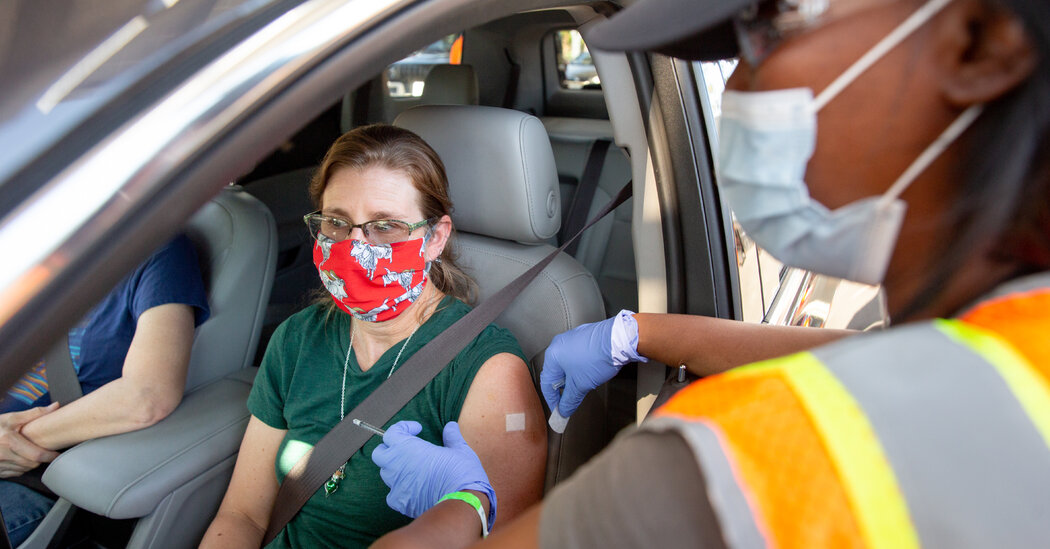By Emily Anthes
The Pfizer-BioNTech coronavirus vaccine provides almost complete protection against severe disease caused by the coronavirus, including two variants of concern, according to a study published Wednesday.
The study, which is based on the real-world use of the vaccine in Qatar, found that the vaccine does not provide complete protection against being infected with B.1.1.7, the variant first identified in the U.K., or B.1.351, the one first identified in South Africa. What it does provide is extraordinary protection against the worst outcomes, including severe pneumonia and death.
“This is really good news,” said Dr. Annelies Wilder-Smith, an infectious disease researcher at the London School of Hygiene and Tropical Medicine. “At this point in time, we can confidently say that we can use this vaccine, even in the presence of circulating variants of concern.”
Previous research suggested that B.1.1.7 is more infectious and more deadly than other variants, but that vaccines still work well against it. On the other hand, vaccines appear to be less effective against B.1.351, according to earlier studies.
The new paper, which appeared in the New England Journal of Medicine, is based on information about more than 200,000 people that was pulled from Qatar’s national Covid-19 databases between Feb. 1 and March 31.
During that time, the variants were widespread there: Sequencing conducted between Feb. 23 and March 18 suggests that roughly half the coronavirus infections during that time were caused by B.1.351 and 44.5 percent were caused by B.1.1.7.
In multiple analyses, the researchers found that the vaccine was 87 to 89.5 percent effective at preventing infection with B.1.1.7 among people who were at least two weeks past their second shot. It was 72.1 to 75 percent effective at preventing infection with B.1.351 among those who had reached the two-week point.
Even that slightly reduced effectiveness against infection with B.1.351 is still largely good news, one of the study’s authors, Laith Abu-Raddad, an infectious disease epidemiologist at Weill Cornell Medicine – Qatar said.
“We’re talking about a variant which is probably the nastiest of all the variants of concern,” he said. “It’s not the 95 percent we were hoping, but the 75 percent is really great.”
The vaccine was highly effective at protecting against the worst outcomes. Overall, it was 97.4 percent effective at preventing severe, critical or fatal disease from any form of the coronavirus, and 100 percent effective at preventing severe, critical or fatal disease caused by B.1.1.7 or B.1.351.
The slight difference in effectiveness is likely to be a result of the fact that the sample sizes were smaller for the subgroups of patients with a documented variant, Dr. Abu-Raddad said.
“The vaccines are working really, really well — maybe not perfectly, but really, really well,” Dr. Abu-Raddad said. “It remains the most fundamental solution to get us out of this pandemic. That’s it. We have to get vaccinated.”
Site Index
Site Information Navigation
Source: Read Full Article

